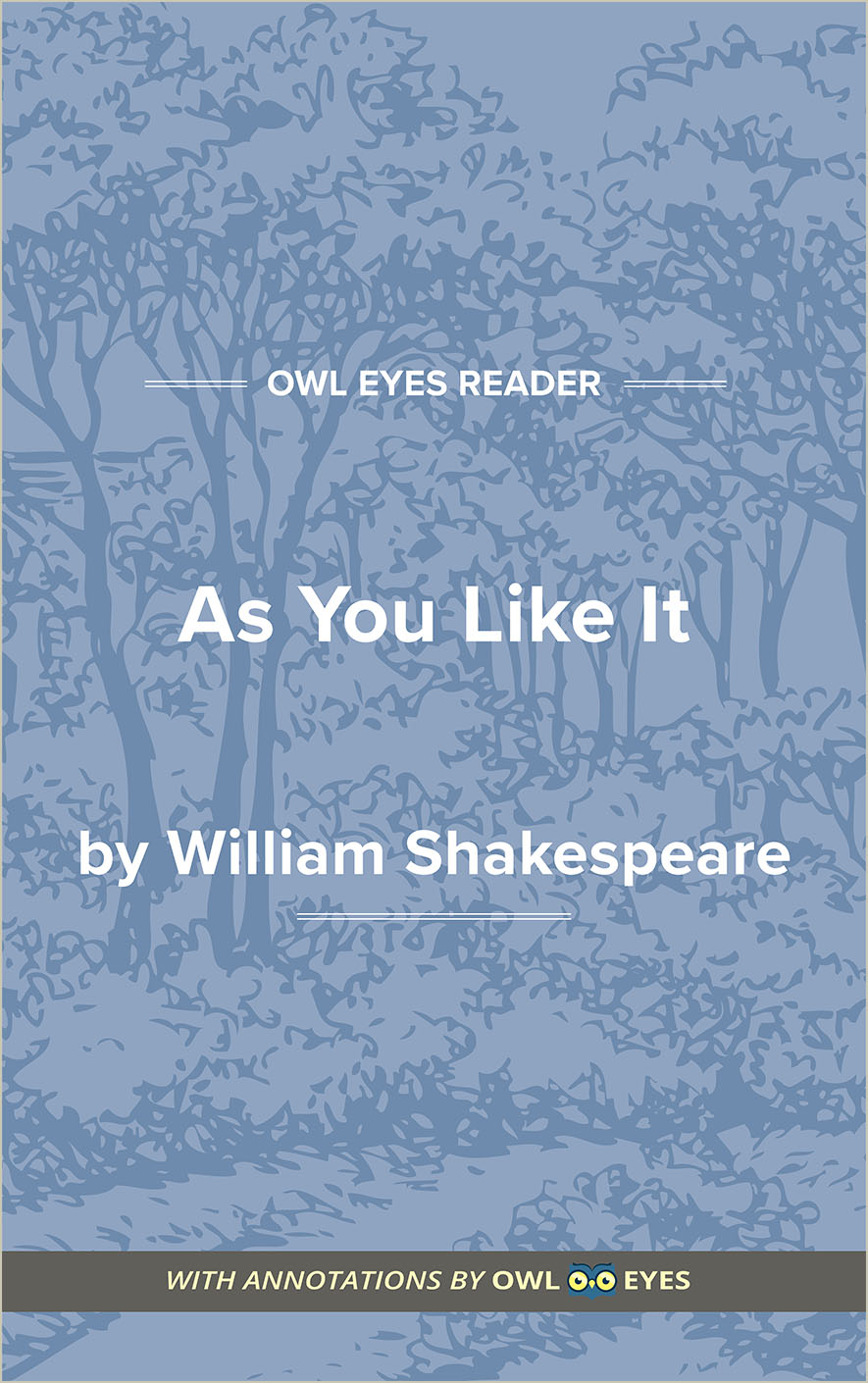Analysis Pages
Rhyme in As You Like It
Rhyme Examples in As You Like It:
Act I - Act I, Scene 3
🔒"After my flight. Now go we in content To liberty, and not to banishment...." See in text (Act I - Act I, Scene 3)
Act II - Act II, Scene 1
🔒"Finds tongues in trees, books in the running brooks, Sermons in stones, and good in everything. I would not change it...." See in text (Act II - Act II, Scene 1)
Act II - Act II, Scene 7
🔒"Give me your hand, And let me all your fortunes understand. ..." See in text (Act II - Act II, Scene 7)
Act III - Act III, Scene 2
🔒"'From the east to western Ind, No jewel is like Rosalind...." See in text (Act III - Act III, Scene 2)

